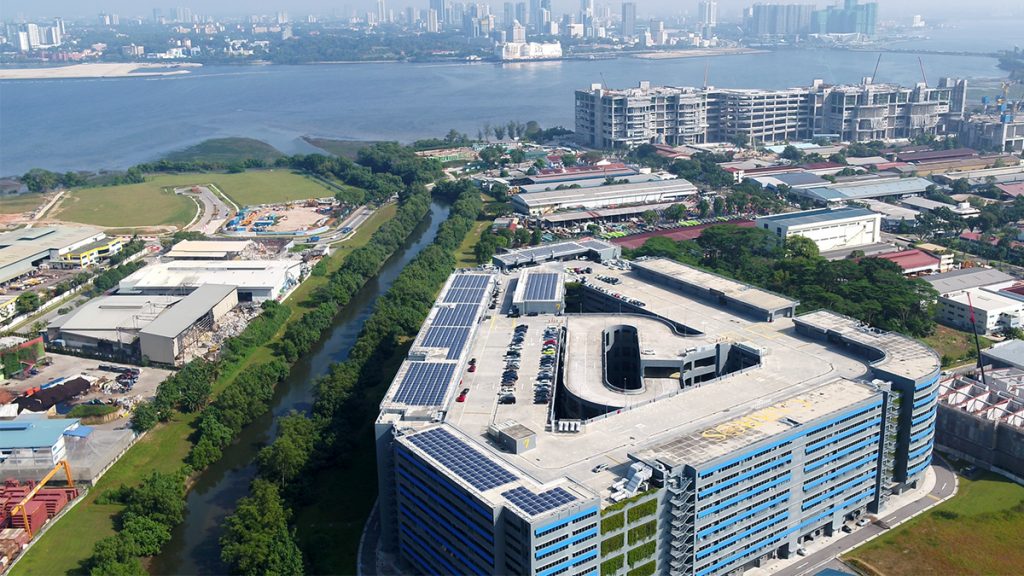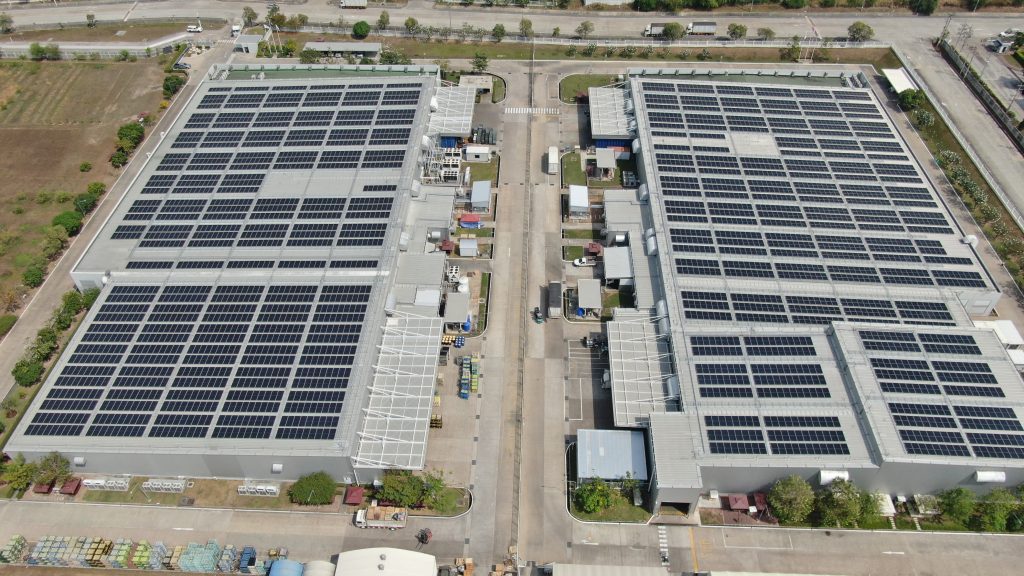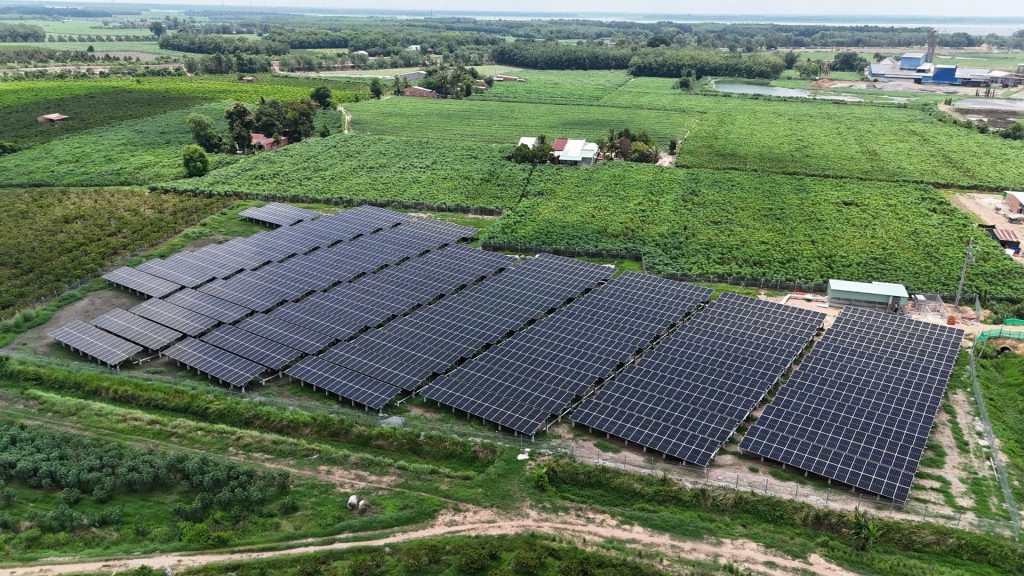Power Purchase Agreements (PPAs) provide businesses a flexible and cost-effective way to secure long-term energy from renewable sources like solar power.
Companies use PPAs to lock in energy prices, manage energy costs, hedge against market volatility, and meet sustainability targets. All of this can be done without significant upfront capital for solar infrastructure.
APAC’s sunny, tropical climate makes solar power a popular option for businesses to reduce energy overheads by generating their own electricity. However, understanding PPAs and how they work is crucial to fully harness solar energy.
What is a Power Purchase Agreement?
A PPA is a long-term contract between an energy producer, such as a solar energy company, and a buyer, typically a business or utility. It guarantees a fixed energy price over a specific period, ensuring stability and helping fund solar projects.
Here’s the different types of PPAs:
Physical PPAs
In a physical PPA, a solar panel company installs solar panels at the client’s facility, and the electricity generated is directly used on-site. For example, a manufacturing company might sign a physical PPA where it consumes the solar power produced on its rooftop, lowering its dependency on the grid while benefiting from long-term price stability.
Virtual PPAs
With a virtual PPA, the client doesn’t physically receive the solar power but still pays for the energy output from the panels.
For instance, a multinational corporation may sign a virtual PPA with a solar energy company to support projects in one country while still receiving financial benefits (like cost savings or renewable energy credits) across its global operations, even if they don’t consume the electricity directly.
Synthetic PPAs
In a synthetic corporate PPA, no physical delivery of electricity occurs. Instead, the client agrees to pay the solar energy company a fixed rate based on the energy generated from their solar installations.
This is often used in markets where businesses want to hedge against rising energy prices but cannot directly integrate solar power into their operations. A tech company, for example, might use a synthetic PPA to lower its carbon footprint and meet sustainability goals without needing to actually install solar panels on its premises.
The Regulatory Landscape for PPAs in Asia
Below are some regulatory considerations in the markets:
Singapore
In Singapore, PPAs for solar energy are regulated under the Energy Market Authority (EMA) and focus on facilitating renewable energy adoption.

Businesses can sign private and government-linked PPAs with clear guidelines for rooftop solar projects.
Singapore’s SolarNova program promotes large-scale solar deployment, encouraging companies to adopt solar energy through PPAs. Additionally, the Open Electricity Market enables competition and allows businesses to choose energy providers while complying with national sustainability goals.
Thailand
In Thailand, PPAs are regulated through government-driven schemes involving the Metropolitan Electricity Authority (MEA), Provincial Electricity Authority (PEA), and Electricity Generating Authority of Thailand (EGAT).

Competitive bidding remains a key mechanism for renewable energy quotas, but private PPAs are evolving. A new framework is being developed for direct PPAs, allowing businesses to purchase up to 2,000 megawatts of clean energy directly.
Self-consumption models continue to exist, but new regulations, including wheeling charges, are anticipated to govern grid access and energy transmission.
Vietnam
Vietnam has seen a rapid expansion of solar energy adoption through its Feed-in Tariff (FiT) program, offering favourable rates for solar producers.

Recently, the government introduced direct PPAs (DPPA), allowing businesses to negotiate directly with energy producers in both private wire schemes (physical) and virtual DPPA schemes with unlimited project size.
Vietnam’s Ministry of Industry and Trade (MOIT) regulates these agreements and ensures compliance with national energy strategies and renewable energy targets. Additionally, large-scale projects must adhere to specific grid connection and power generation regulations.
Benefits of PPAs for Businesses
PPAs offer businesses several key benefits:
- Stable Energy Prices: By locking in energy rates for the long term, businesses can protect themselves from market volatility, ensuring predictable and stable energy costs.
- Sustainability Goals: PPAs provide a pathway for businesses to transition to renewable energy, reducing their carbon footprint and supporting corporate sustainability targets.
- No Upfront Costs: Businesses can adopt solar energy without significant capital investment, as the solar provider typically covers the installation costs.
Examples of Successful PPA Implementations in Asia
- Singapore: Tanah Merah Country Club (TMCC) signed a 2.2 MWp ground-mounted solar PV system, expected to generate 3,160 MWh of renewable electricity annually. This will enable significant cost savings for TMCC and reduce the club’s carbon footprint.
- Vietnam: Hiep Phat International Agricultural Co. Ltd implemented a 2.1 MWp agri-PV solar installation, generating 3,250 MWh annually. The PPA provided stable energy prices and supported sustainability by integrating solar with agricultural activities.
- Thailand: NTN and NTPT installed 2 MWp solar rooftop systems generating 2,700 MWh annually. The PPA helped reduce electricity costs and aligned with both companies’ sustainability objectives.
TotalEnergies ENEOS: Harnessing Solar Energy for Business Efficiency
PPAs provide businesses with a cost-effective, sustainable way to secure stable energy prices, reduce operational overheads, and support sustainability goals.
TotalEnergies ENEOS helps businesses navigate the complexities of PPA structures and regulatory requirements across the globe. To learn more about how TotalEnergies ENEOS can guide you through the regulatory landscape in Asia, contact us directly for a detailed discussion.
